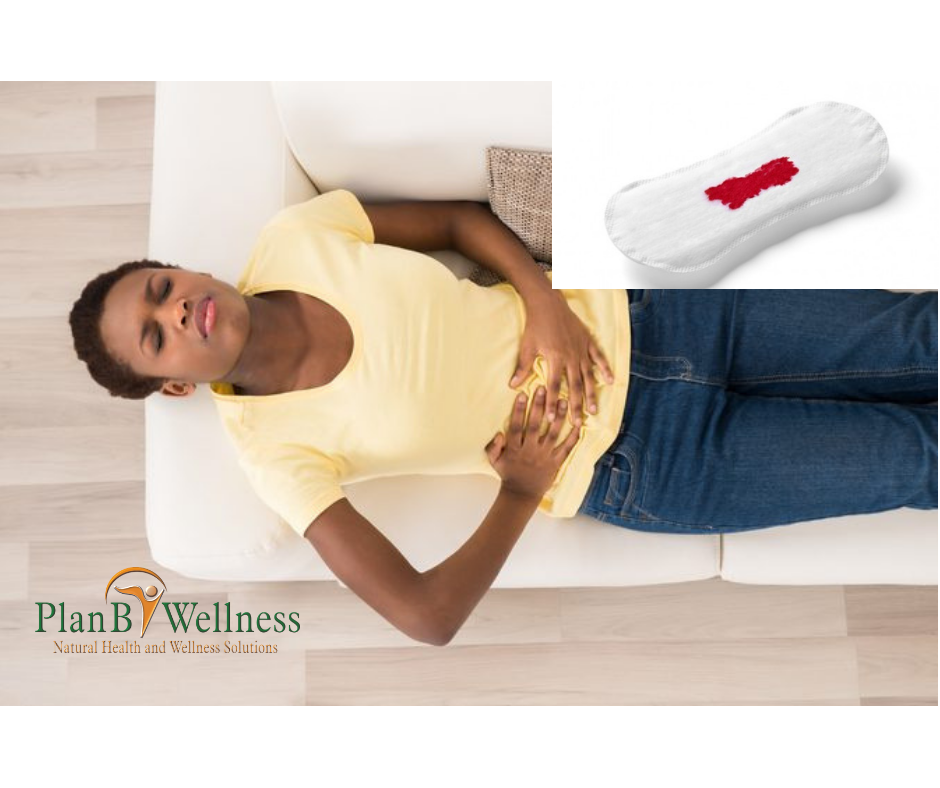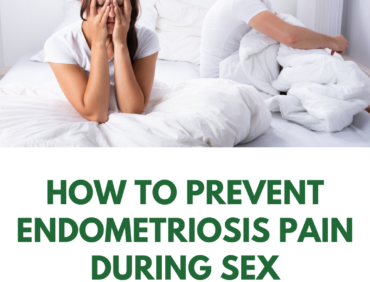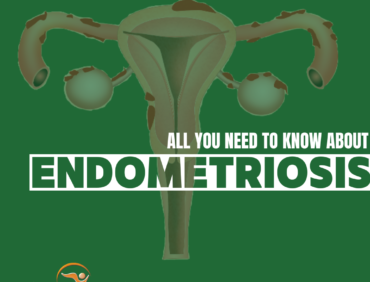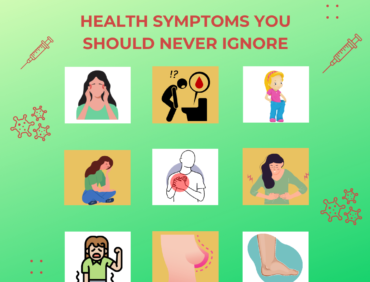The issue of pain and discomfort during menstruation is something that affects a lot of women of different ages and races worldwide.
Pain and discomfort just before and/or during menstruation that is severe enough to interfere with normal daily activities is called dysmenorrhea, or premenstrual syndrome (PMS).
Basically, menstrual cramps are caused by contractions (tightening) in the uterus by a chemical called prostaglandin.
The uterus, where a baby grows, contracts throughout a woman’s menstrual cycle. During menstruation, the uterus contracts more strongly.
If the uterus contracts too strongly, it can press against nearby blood vessels, cutting off the supply of oxygen to the muscle tissue of the uterus. Pain results when part of the muscle briefly loses its supply of oxygen.
Dysmenorrhea can be primary or secondary in nature;
Primary Dysmenorrhea is the common menstrual cramps that ar

e recurrent and are not due to other diseases. Pain usually begins 1 or 2 days before or when menstrual bleeding starts, and is felt in the lower abdomen, back, or thighs.
Pain can range from mild to severe, can typically last 12 to 72 hours, and can be accompanied by nausea-and-vomiting, fatigue, and even diarrhoea.
Common menstrual cramps usually become less painful as a woman ages and may stop entirely if the woman has a baby.
Secondary Dysmenorrhea is pain that is caused by a disorder in the woman’s reproductive organs, such as endometriosis, adenomyosis, uterine fibroids, or infection.
Pain from secondary dysmenorrhea usually begins earlier in the menstrual cycle and lasts longer than common menstrual cramps. The pain is not typically accompanied by nausea, vomiting, fatigue, or diarrhoea.
The main symptom of dysmenorrhea is pain. It occurs in your lower abdomen during menstruation and may also be felt in your hips, lower back, or thighs.
Other symptoms include nausea, vomiting, diarrhoea, abdominal bloating, breast tenderness, headache, lightheadedness, fatigue, sleep problems and mood swings.
Conditions that can cause severe symptoms or secondary dysmenorrhea include the following:
- Certain sexually transmitted diseases (STDs)
- Endometriosis (disorder that affects the lining of the uterus)
- Extreme stress and anxiety
- Ovarian cysts
- Pelvic Inflammatory Disease (PID; infection in the reproductive system)
- Use of an IUD (intrauterine device) as a form of contraception
- Uterine fibroids (non-cancerous tumours of the uterus)
If premenstrual pain and discomfort are not severe, self-care techniques (e.g., over-the-counter pain relievers, exercise, heating pads) may provide relief.
However, if self-care measures are not effective or the pain is severe, women should contact a health care provider.
Depending on the symptoms, physicians may recommend other medications, such as prescription pain relievers, anti-inflammatories, antibiotics, or antidepressants.
Over-the-counter pain relievers, such as ibuprofen (Advil, Motrin IB, others), at regular doses starting the day before you expect your period to begin can help control the pain of cramps.
Prescription non-steroidal anti-inflammatory drugs also are available for use.
To relieve mild menstrual cramps:
- Place a heating pad or hot water bottle on your lower back or abdomen.
- Rest when needed.
- Avoid foods that contain caffeine.
- Avoid smoking
- Avoid alcohol
- Massage your lower back and abdomen.
- exercise regularly.
Do not forget to bless this write-up with others too by sharing. Use the comment box below to ask any question about your menstruation.
Stay healthy and never give up!
Plan B Wellness
Email: consult@planbwellness.com
Twitter: @planbwellness
Instagram: @planbwellness
Tel/Whatsapp: +2348099666650










[…] Being thin seems to be the in thing these days. But lacking adequate body fat to hold the uterus in place can result in a prolapsed (dropped) uterus, which increases the chances of pelvic infections and period pain. […]
[…] Dysmenorrhea is the medical term for painful menstrual periods caused by uterine contractions. […]